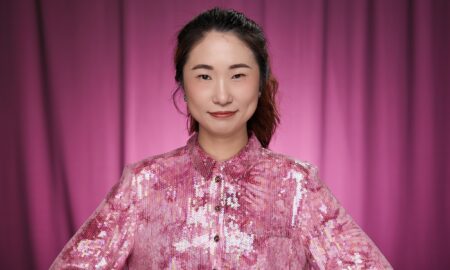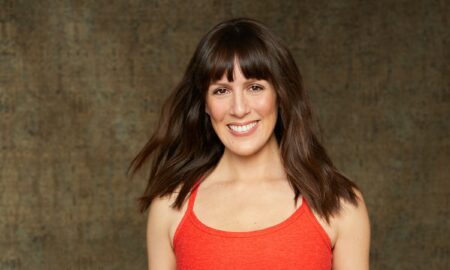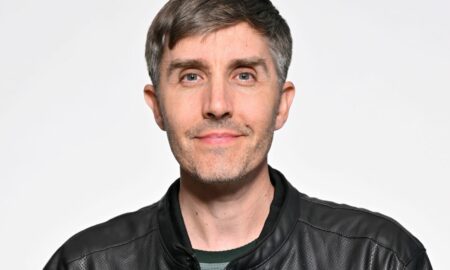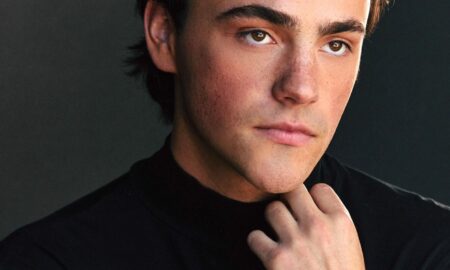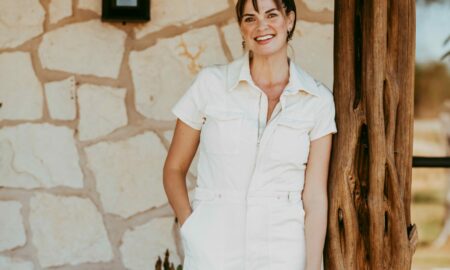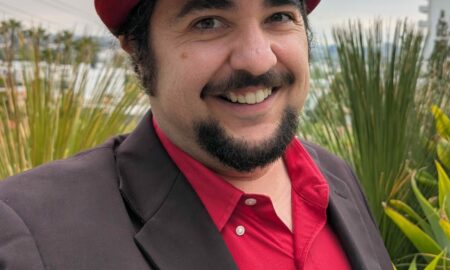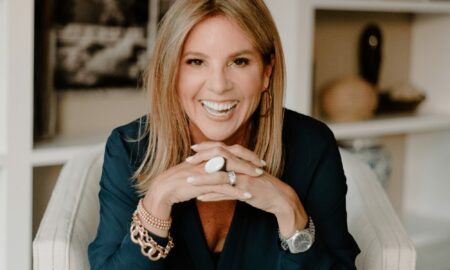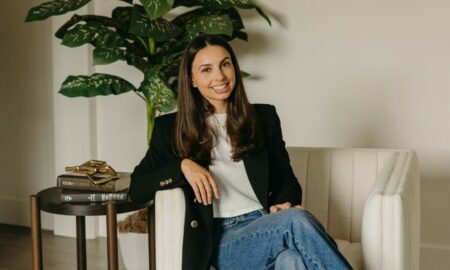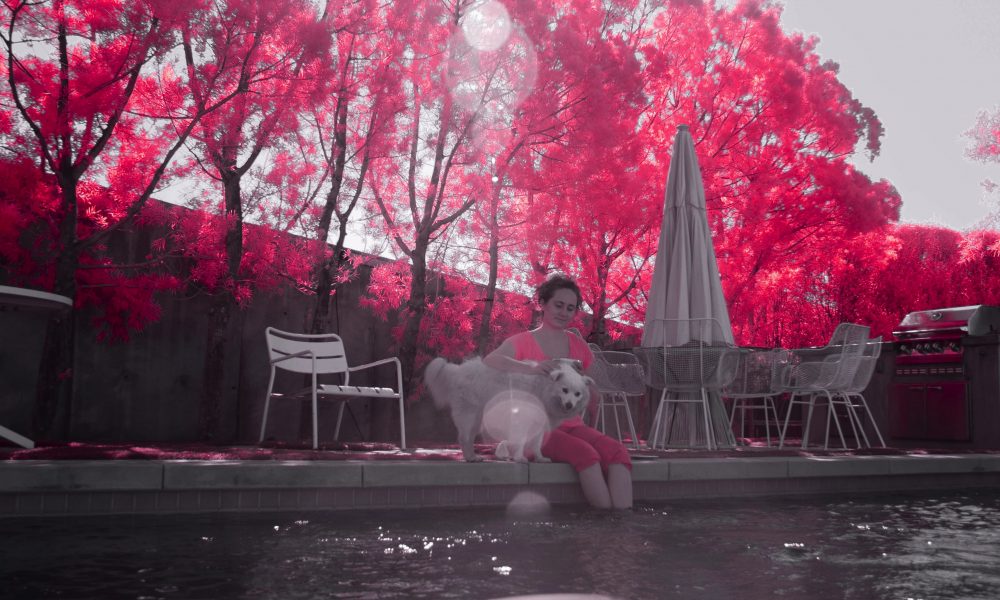

Today we’d like to introduce you to Alecia Jean Denegar.
Alecia Jean, can you briefly walk us through your story – how you started and how you got to where you are today.
Where to start, it seems that I’ve always been working to where I am. Cinematography is an all-encompassing process as it is both technical and artistic development. At a young age, I knew I wanted to tell stories but didn’t always have the resources to tell stories with camera. Instead, I worked in backstage theater, took still photographs, and inevitably ended up apply for Columbia College Chicago. I’d initially applied to the program to become an editor as it was very hard to have access to a camera with my income level at the time. Yet, once I picked up a Bolex my first day of class, my path was set on cinematography. I had a lot of support from my mentors Adam Jones head of cinematographer department, Bruce Sheridan who was in charge of film department, and Tony Santiago who hired me to work at the school sound stage. I completely submerged myself into the cinematography program. I was eager to practice my lighting and understanding how to shoot, so I took out gear every chance I could. With the school resources, I was able to shoot additional projects in school and outside of school. I started working for the school sound stage, started working at Daufenbach Camera rental house, and calling the Local476 Roster to work as an electrician every chance I could- all while still attending my advanced cinema classes. I had a deep hunger to learn everything in order to be a better cinematographer. I’d gotten a lot of experience from those opportunities but ultimately couldn’t stay in Chicago after graduating and moved to Los Angeles. Once in Los Angeles, I started work primarily inside of camera department and slowly built my way into camera operating. While crewing, I also shot a lot of small shoots and commercial work, but these projects were not the narrative stories that I wanted to tell. I still hadn’t made that leap into feature film and knew that I needed to focus my path solely on cinematography. It’s around that time that I had to make a choice to either join the Local600 or finally commit to cinematography full time. That’s when I decided to apply for the American Film Institute Cinematography program. I’ve been fortunate to work with a variety of very talented people at AFI. Since the pandemic began, we’ve shot several Covid safe projects. I’ve also been participating in a lot of activism with the movement for Black Live Matter and going to protest to document the events that take place. I’ve taken on several IR photography projects and am looking to do more documenting for the movement.
We’re always bombarded by how great it is to pursue your passion, etc – but we’ve spoken with enough people to know that it’s not always easy. Overall, would you say things have been easy for you?
Working in the film industry hasn’t always been easy. I remember the first feature I worked on as a 1st AC was me emailing the cinematographer several times over LinkedIn and stalking their favorite camera house till they finally added me to their production team. There was never a lack of trying to find a place in the Chicago film industry, but there simply was not enough work that I needed for it to be sustainable. I had to work several times as a Bartender during college and after graduation to make ends meet. It was due to Adam Jones recommendation that I was able to work at the school sound stage. That job enabled me to move out of my car, quit bartending, and move closer to school. I was on my own in terms of self-sustainability and had to manage my path forward alone. I worked as an intern at Daufenbach Camera and called the Local476 Roster every Tuesday morning at 8am just to scrape by. After graduating the program, I still couldn’t find sustainable work in the film industry. Several of my peers had already left for the west coast and I knew I had to find my career in a different city. Once in Los Angeles, I was able to work fairly quickly and was able to find sustainable work, though not the work that I wanted. That is ultimately the biggest obstacle that everyone faces when first arriving to LA- how to become the person you want to be.
We’d love to hear more about your work and what you are currently focused on. What else should we know?
I work as a freelance cinematographer in the Los Angeles area. I mostly shoot short films, music videos, and commercial work with my modest lighting package. Over the years, I’ve made it a point to diversify the digital cameras that I shoot with. I take every opportunity to shoot with different cameras and lenses but my natural lighting style has stayed fairly consistent over the years. Every opportunity I have to light with a new piece of equipment; I test to see how I can better utilize it. Having shot and lit a lot on 35mm film, I’m fairly comfortable with the medium. My best projects have been shot on 35mm film and I hope to continue to shoot on 35mm film when I can.
What were you like growing up?
Growing up, I moved to many different cities. I moved almost every year to a different school or home. Being transient was an integral part of my formative years and it gave me a wonderful perspective on life as a kid. Moving around gave me insight into different school systems, group dynamics, and cultural significance in each place that I went. We were a poor family that had to find work wherever that work maybe so we moved closer to those jobs so that we could maintain a roof over our heads. My mother was a single parent who had me young so she raised me strong, resilient, and uncompromising. I was a very outspoken child and would play out stories from movies on the playground with my friends. Without anyone asking me to; I applied myself to work small jobs growing up as a kid. I wanted to provide and not burden those that needed support. As a child, I must’ve taken every kind of after school program a kid could want to take. While in middle school, I was encouraged to learn as much as I could so I took up martial arts, violin, and singing.
Once in high school, I participated in a lot of after school clubs, one for every day of the week; gay straight alliance, poetry club, writing club, anime club, and backstage theater. No matter how tight our budget my family ensured that I’d be allowed the opportunity to try anything I wanted so long as I choose a path forward in life that made me happy. At the same time, I was also placed in an after school volunteer programs from elementary school all the way into graduating high school. It was my pride to give back to the community that helped support my family since my mother couldn’t watch over my sister, brother, and I after school. We would clean up communities, volunteer at assistant living, and hold fundraisers. I’d also give my time to food banks at local churches and clothing donations to help stock necessary supplies. It invigorated me to give back to people I knew were struggling in similar circumstances and it also helped me feel like I was making a difference.
Contact Info:
- Website: https://adenegar01.wixsite.com/jeancinematographer
- Email: [email protected]
- Instagram: @ajd_90
- Other: https://www.linkedin.com/in/adacfilm






 Image Credit:
Image Credit:
Sheldon Botler, Oliver Cohen, Erica Chan
Suggest a story: VoyageLA is built on recommendations from the community; it’s how we uncover hidden gems, so if you or someone you know deserves recognition please let us know here.












